Porsche 991 GT2 RS Buyers Guide
When the 2018 Porsche 911 GT2 RS was introduced, it redefined the boundaries of performance for the iconic 911 lineup. As the most powerful 911 ever produced at the time, the GT2 RS served as a testament to Porsche’s commitment to engineering excellence and innovation. Derived from the 991.2 generation, the GT2 RS brought motorsport-level capabilities from the track to the streets.

At the heart of the GT2 RS lies a 3.8-liter twin-turbocharged flat-six engine, producing 700 hp and 553 lb-ft of torque. It is paired with a 7-speed PDK dual-clutch transmission, pushing the car from 0 to 60 mph in just 2.7 seconds and achieving a top speed of 211 mph. The combination of turbocharging and lightweight engineering ensured the GT2 RS to make these impressive numbers.
The exterior of the GT2 RS comes with carbon-fiber components everywhere, including the hood, front fenders, and rear wing, to minimize weight while maximizing performance. A magnesium roof and optional Weissach Package further reduce weight, while erodynamic elements, such as the large front splitter, massive rear diffuser, and fixed rear wing, ensure optimal downforce and stability at high speeds.
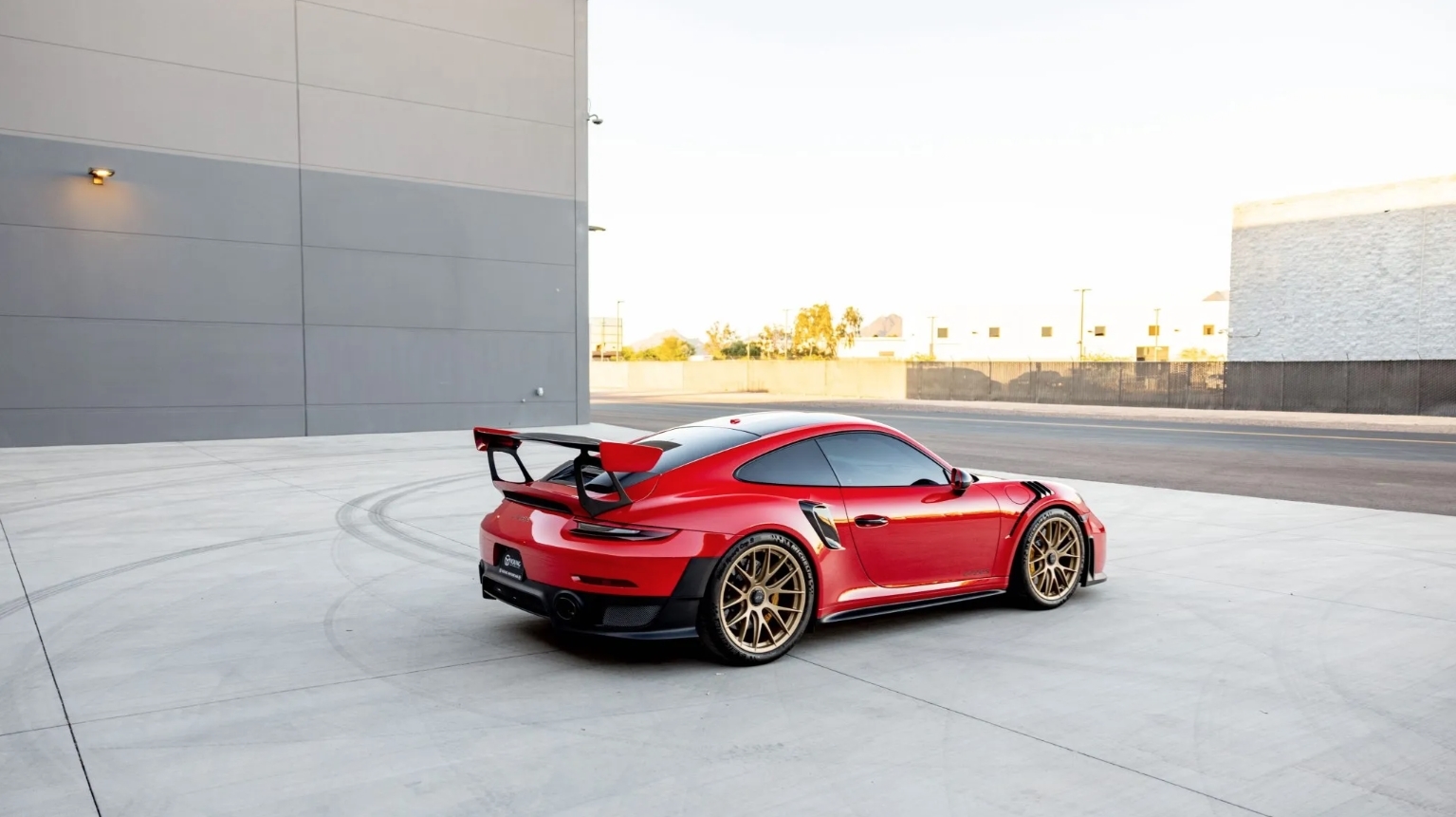
Photo by Bring a Trailer
Inside, the GT2 RS offers alcantara and carbon-fiber accents. Bucket seats provide excellent support during high-speed cornering, while features like Porsche Communication Management (PCM) keep the driver connected and informed. For those seeking an even more focused experience, the Weissach Package adds lightweight magnesium wheels and a roll cage.
In its segment, the Porsche 911 GT2 RS faced tough competitors, each aiming for supremacy in the high-performance sports car arena. Rivals such as the Lamborghini Lamborghini Aventador SV, McLaren 765LT, Ferrari 488 Pista, and Nissan GT-R NISMO provided alternatives with their own unique approaches to performance and design.
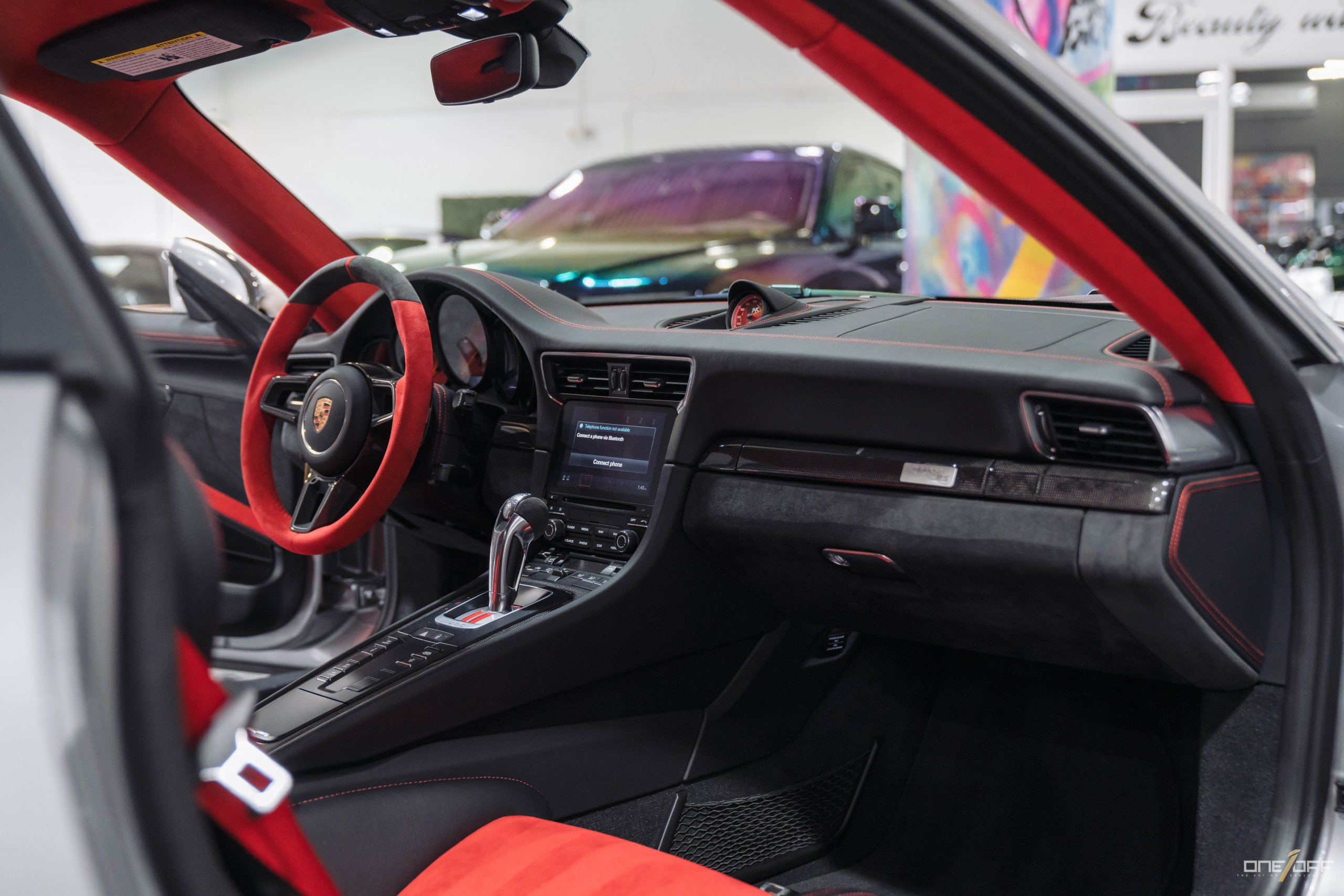
Despite this competition, the GT2 RS stood out from the pack with it’s driving experience and rich Porsche iconic history.
Model Changes (Breakdown by Year)
2018 Porsche 991 GT2 RS (Launch year)
The Porsche 911 GT2 RS made its debut in 2018, following its unveiling at the 2017 Goodwood Festival of Speed. Built on the 991.2 platform, it immediately caught attention as the most powerful and track-focused 911 ever produced.

Photo by Collecting Cars
Deliveries began later that year, showcasing a car that combined cutting-edge technology, lightweight engineering, and breathtaking performance. With a 700 hp twin-turbocharged flat-six engine and advanced aerodynamics, the GT2 RS set a new benchmark for Porsche’s high-performance offerings.
The starting price of the 2018 Porsche 991 GT2 RS was approximately $293,200. If you wanted the Weissach package, it would be an additional $31,000 on top.
2019 Porsche 991 GT2 RS
The 2019 Porsche 991 GT2 RS remained unchanged from its 2018 counterpart, as it was initially intended to be a limited-production model with approximately 1,000 units planned globally.

Photo by PCarMarket
However, the overwhelming demand prompted Porsche to extend production slightly into 2019. By the end of its production run, the total number of GT2 RS units had reportedly reached 1,580 worldwide.
The starting price for the 2019 Porsche 991 GT2 RS was the same as the previous year at $293,200, and an additional $31,000 for the Weissach package.
Porsche 991 GT2 RS Common Problems
The Porsche 911 GT2 RS is widely regarded as one of the most reliable high-performance supercars, carrying the renowned Porsche engineering and reliability found across their lineup. However, like any specialized car, a few minor issues have been reported. These include occasional inaccuracies with the fuel level sensor and concerns about the longevity of the Porsche Ceramic Composite Brakes (PCCB) under extreme conditions.
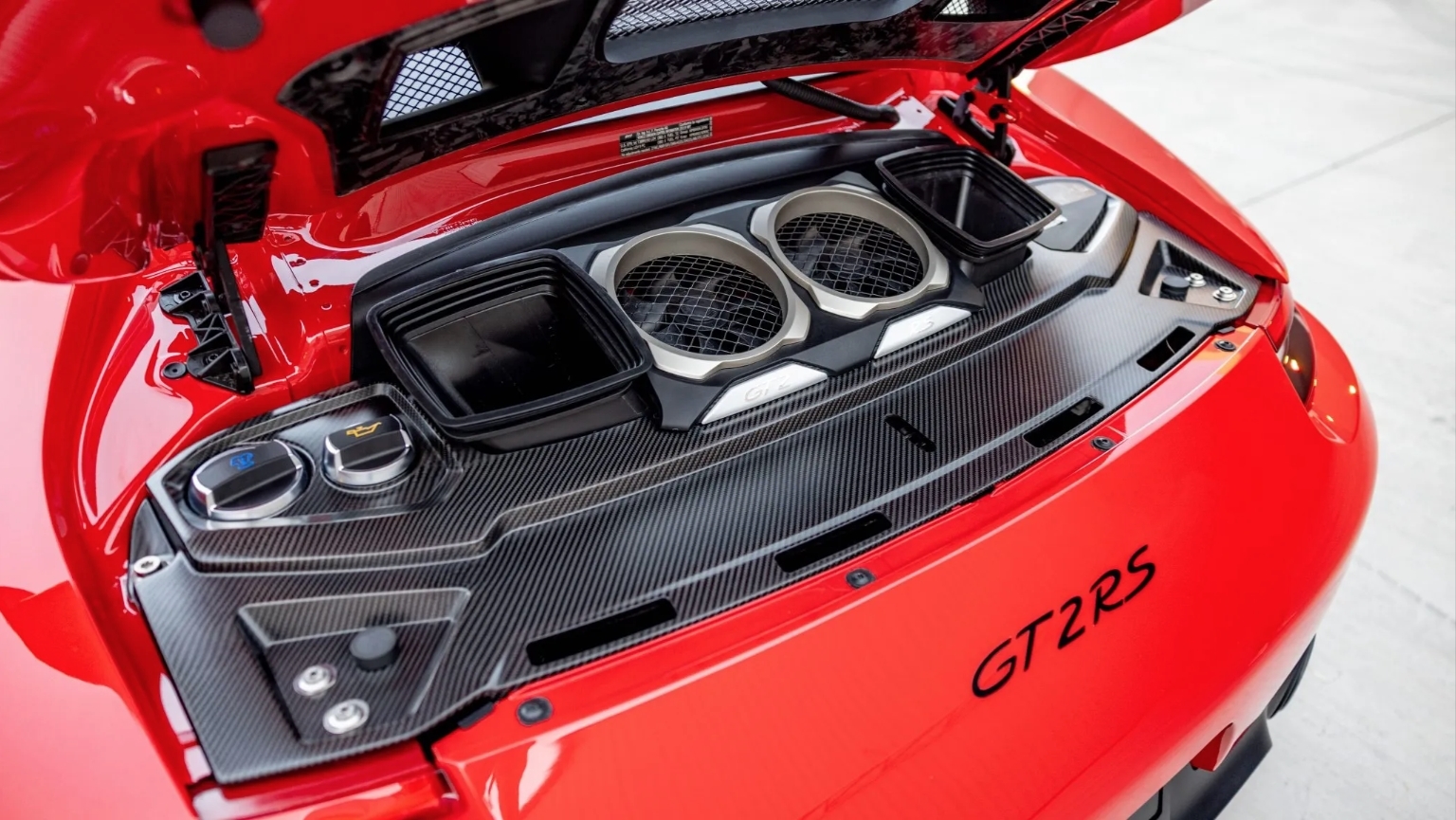
Photo by Bring a Trailer
Despite these isolated reports, the GT2 RS remains a robust and bulletproof car that can withstand rigorous use, making it a top choice for enthusiasts seeking a dependable track-focused machine.
Keep in mind, that it is essential that all cars, even supercars, can have issues and it is crucial to perform a Pre-Purchase Inspection (PPI) from an authorized dealer or experienced independent mechanic to reveal all issues.
Fuel Level Sensor Malfunction: Some owners have experienced inaccurate fuel readings, particularly when the tank is below a quarter full. This issue often necessitates the replacement of the fuel level sensor.
Porsche Ceramic Composite Brakes (PCCB) Concerns: There have been discussions about the performance and longevity of the PCCB system under certain driving conditions. Some reports suggest that, despite their high-performance capabilities, the ceramic brakes may not meet all drivers' expectations, especially under extreme use.
Recalls
2018 Porsche 991 GT2 RS
Equipment: Other: Owners/service/other manual (Recall no. 19V875000)
The Child Restraint System (CRS) instructions within the Owner's Manual may not provide enough specificity for proper installation. As such, these vehicles fail to comply with the requirements of Federal Motor Vehicle Safety Standard (FMVSS) number 225, "Child Restraint Anchorage Systems." Improper CRS installation increases the risk of an injury to the occupant in the event of a crash.
2019 Porsche 991 GT2 RS
Power train: Axle assembly: Axle shaft (Recall no. 19V445000)
The bolts connecting the driveshaft to the wheel hub may not have been properly tightened. If the driveshaft disconnects from the wheel hub, it can increase the risk of a crash.
Maintenance and Ownership Costs
Compared to other supercars, owning a Porsche 991 GT2 RS is considered to have relatively low maintenance requirements.
However, it is important to remember that regular maintenance and repairs will still be necessary, and the costs can vary depending on whether you take your car to a dealer or an independent mechanic.
Here are the suggested service schedules and intervals per Porsche:
Annual Maintenance (Every 10,000 miles or 1 year):
Oil and Filter Change: Replace engine oil and oil filter to maintain engine health.
Vehicle Inspection: Conduct a comprehensive inspection to identify any potential issues.
Every 20,000 miles or 2 years:
Brake Fluid Replacement: Flush and replace brake fluid to ensure optimal braking performance.
Cabin Air Filter Replacement: Replace the pollen filter to maintain air quality inside the cabin.
Air Intake Pre-Filter Replacement: Replace to ensure optimal engine breathing.
Every 30,000 miles or 3 years:
Spark Plug Replacement: Replace spark plugs to ensure efficient engine performance.
Every 40,000 miles or 4 years:
Major Service: Includes all tasks from the biennial maintenance, plus additional inspections and replacements as needed.
Every 60,000 miles or 6 years:
Drive Belt Replacement: Replace the drive belt to prevent potential failures.
PDCC Reservoir Replacement: For vehicles equipped with Porsche Dynamic Chassis Control, replace the reservoir to maintain system performance.
PDK Clutch Fluid Replacement: For vehicles with PDK transmission, replace clutch fluid to ensure smooth operation.
Throttle Body Cleaning: Clean the throttle body to maintain optimal air intake.
Additional Maintenance Considerations:
Tire Inspection: Regularly check tire condition and pressure, especially before track use.
Brake System Inspection: Frequently inspect brake pads and discs for wear, particularly if the vehicle is used on the track.
Coolant System Check: Regularly inspect the cooling system, especially for vehicles not driven frequently.
Here is a rough estimate of typical service costs associated with the Porsche:
Oil Change - An oil change typically costs between $400 and $600 at a Porsche dealership, depending on labor rates and oil/filter costs. Independent shops offer the service for $250 to $400, providing a more affordable option without compromising quality.
Minor Service - Minor services include an oil change, fluid top-offs, brake system inspection, and a multi-point inspection. At a dealership, these services range from $800 to $1,200, reflecting Porsche's premium service costs. Independent shops usually charge $500 to $800, offering similar services at a reduced rate.
Major Service - A major service for the GT2 RS involves comprehensive inspections, spark plug replacement, brake fluid changes, and additional preventive maintenance. Dealership prices for major services range from $2,000 to $3,500, while independent specialists typically charge between $1,500 and $2,500.
Tires - The GT2 RS comes equipped with track-focused tires, such as Michelin Pilot Sport Cup 2, which provide exceptional grip but wear quickly. A full set of four tires costs between $2,500 and $4,000 at a dealership, including installation. Independent tire shops often charge $2,000 to $3,200 for the same service.
Brakes - The GT2 RS features Porsche Ceramic Composite Brakes (PCCB), which are highly durable but expensive to replace. Replacing all four rotors and pads costs between $20,000 and $25,000 at a dealership. Independent shops may reduce the cost slightly to around $15,000 to $20,000, but these components remain a significant expense.
Clutch - The GT2 RS uses a PDK (dual-clutch transmission), meaning traditional clutch replacements are unnecessary. However, if PDK maintenance or repair is needed, costs can range from $5,000 to $10,000 at a dealership, with independent shops charging slightly less, typically $4,000 to $8,000.
Options List
When purchasing a Porsche 911 GT2 RS, selecting the right options is key to maximizing the car's value. Here's a breakdown of the notable options for the Porsche 991 GT2 RS:
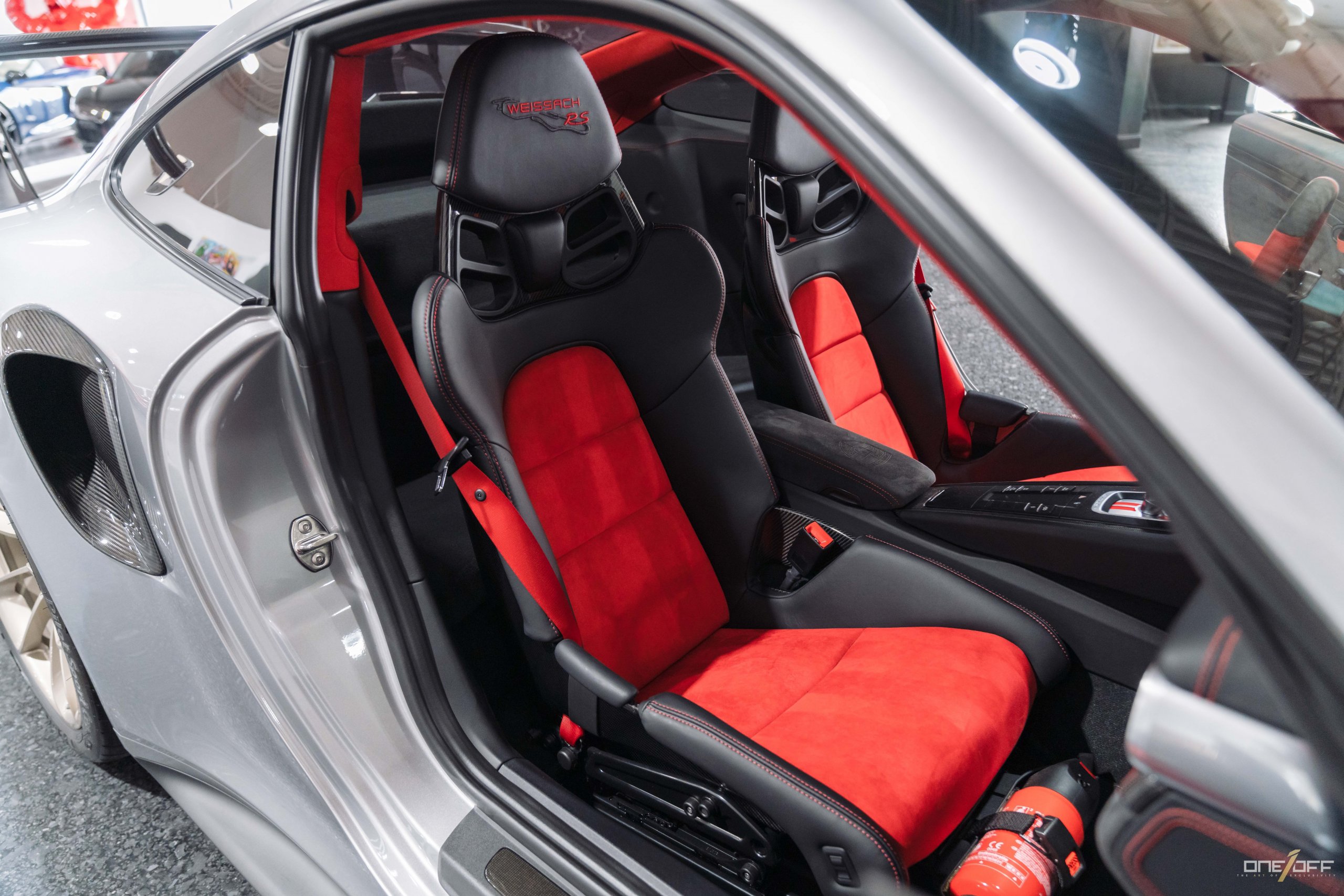
The Weissach Package is the pinnacle of performance upgrades for the GT2 RS. This package focuses on reducing weight and enhancing track performance through features like carbon-fiber anti-roll bars, suspension components, and a carbon-fiber roof. It also includes lightweight forged magnesium wheels and an exposed carbon-fiber finish on the roof.
The Weissach Package not only improves performance but also increases the car’s desirability and resale value, making it a must-have for collectors and enthusiasts.
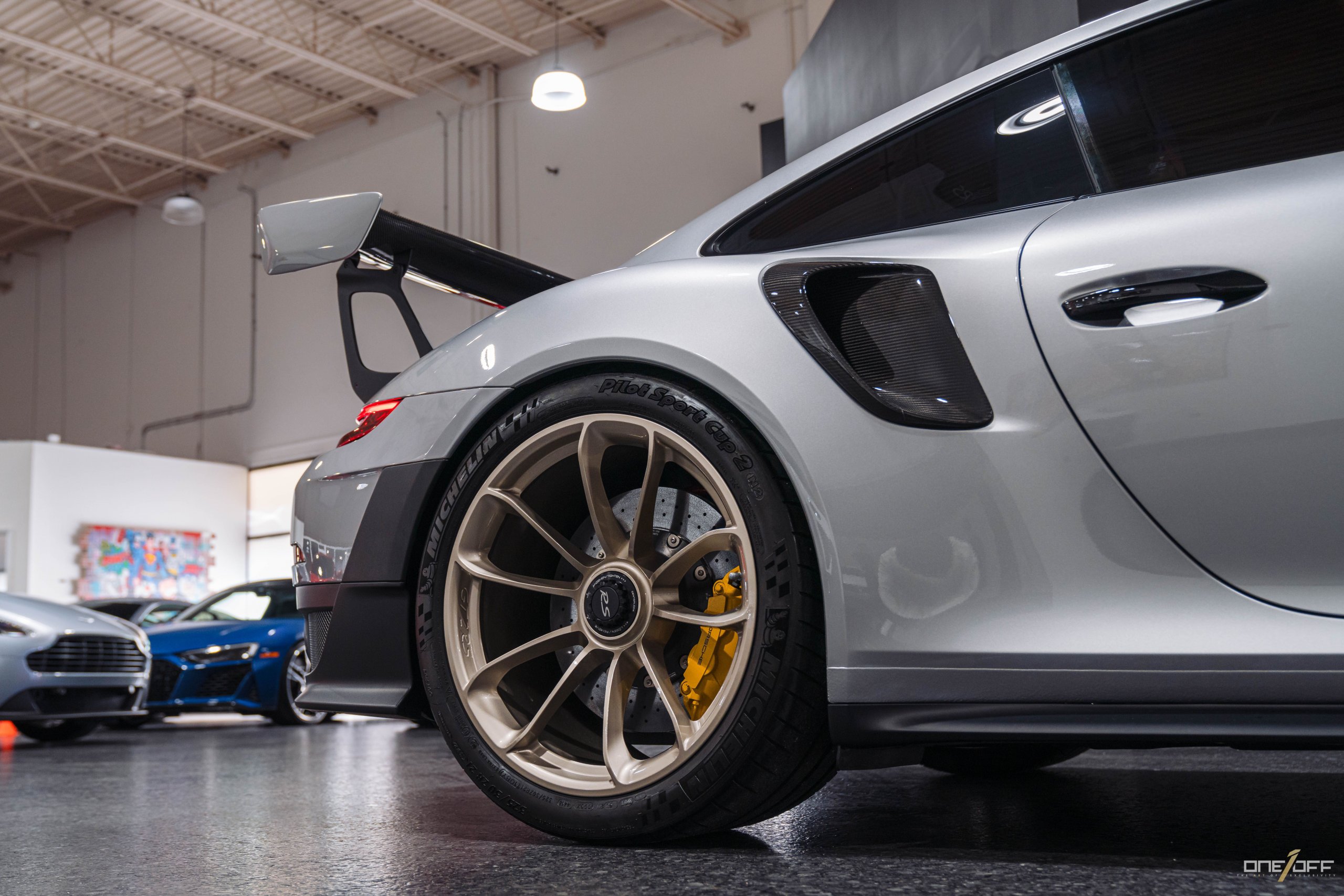
Buyers can further customize their GT2 RS with Porsche Exclusive Manufaktur exterior upgrades, including special paint colors, graphics, and painted accents. Some of the most popular choices include bespoke metallic or matte finishes that highlight the car's aggressive lines. Additionally, carbon-fiber exterior trim pieces, such as mirror caps and air intake surrounds, are also available.
Beyond the Weissach Package, Porsche offered lightweight options such as a magnesium roof (if not included in the Weissach Package) and lightweight glass for the side and rear windows. These features further reduce the car's overall weight, improving its agility and handling characteristics.

Photo by PCarMarket
The GT2 RS interior options include bespoke color combinations, additional Alcantara or leather trim, and personalized stitching. There were also 2 seat options, the race bucket seats or the comfort seats. It is recommended to go for ones with race bucket seats as they are much more desirable. Buyers could also opt for carbon-fiber interior trim pieces and illuminated door sills for a more exclusive touch.
While standard on the GT2 RS, the Porsche Ceramic Composite Brakes can be further customized with colored calipers to match the car’s overall theme. These high-performance brakes provide exceptional stopping power, durability, and reduced weight, making them an integral part of the car’s capabilities.
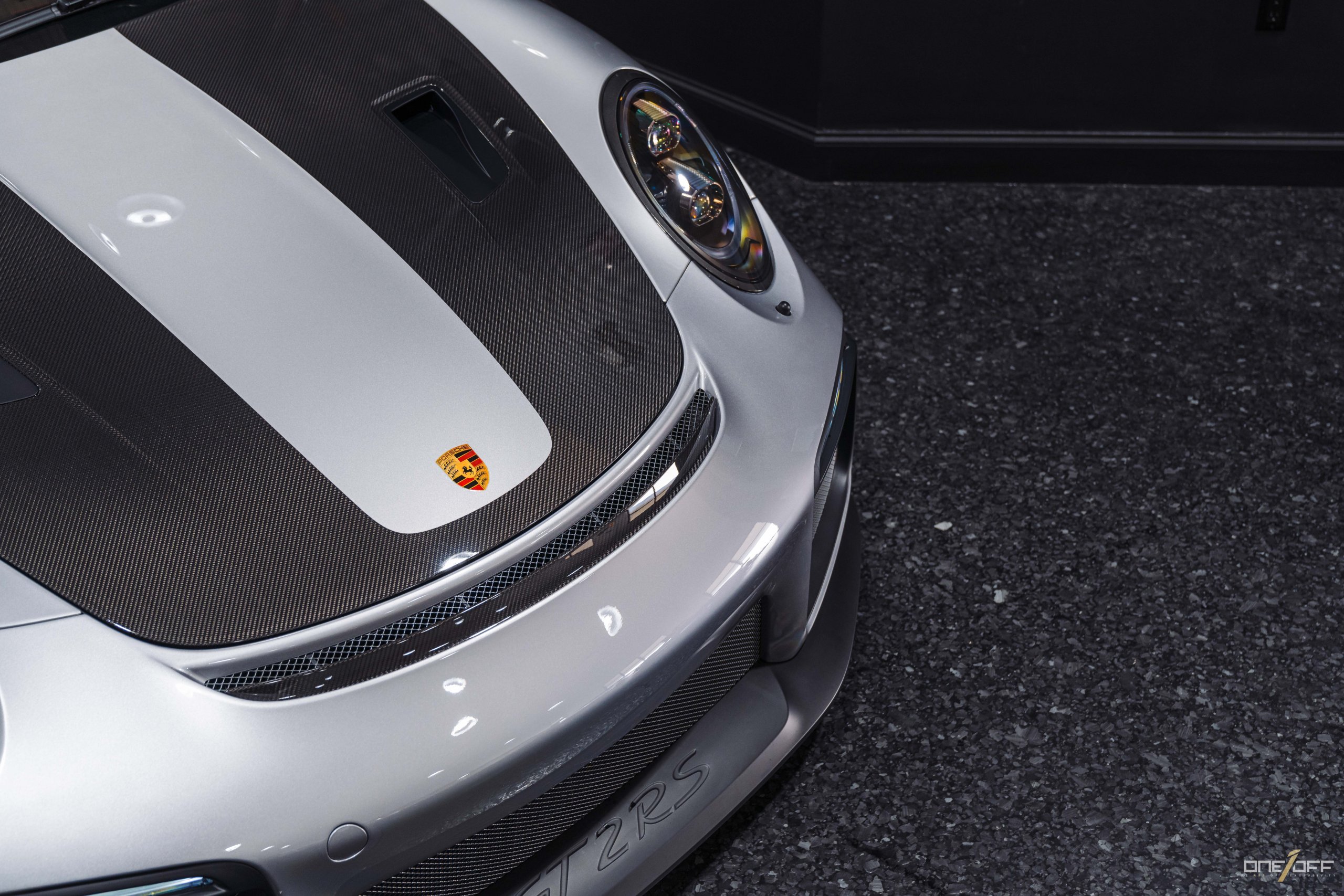
For those who want more tech in their GT2 RS, Porsche offers options like the Chrono Package, which adds a lap timer and telemetry features for track enthusiasts. Additionally, buyers could opt for the Porsche Communication Management (PCM) system with navigation and smartphone integration to enhance daily usability.
The GT2 RS came equipped with Michelin Pilot Sport Cup 2 tires as standard, but owners could specify track-specific compounds for even greater performance.
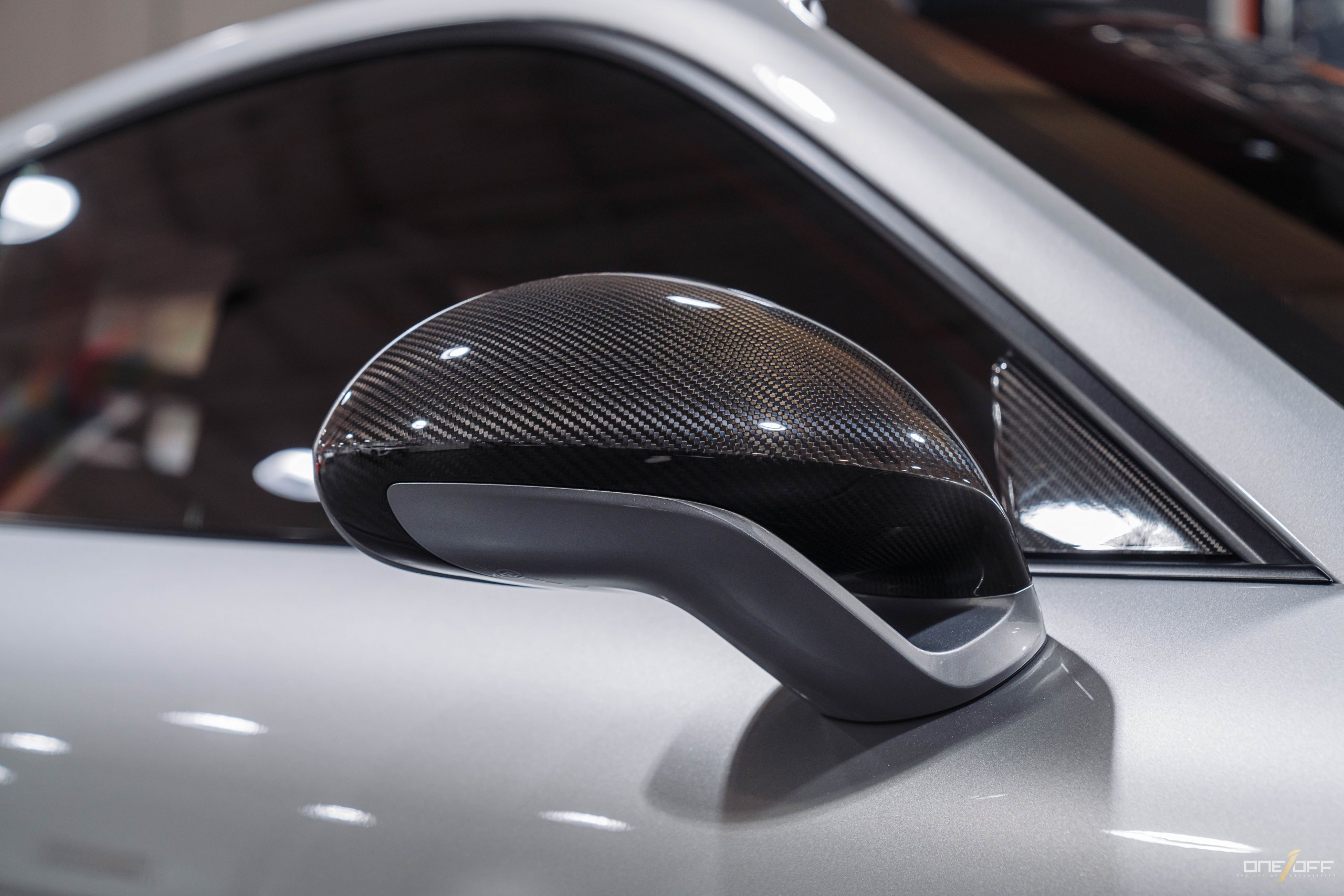
When configured thoughtfully, a well-optioned GT2 RS not only provides a superior driving experience but also holds its value as a highly desirable collector’s item.
2018 Porsche 991 GT2 RS options list
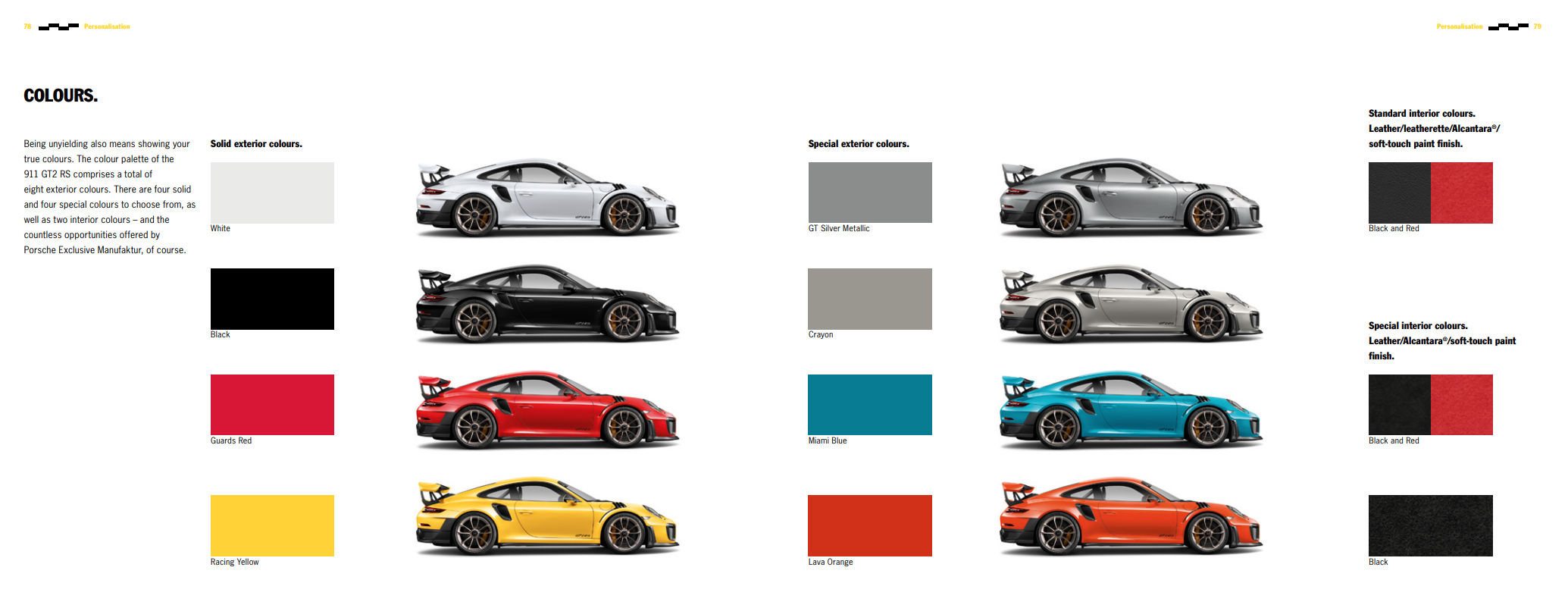
Key Options
Weissach Package
Porsche Exclusive Manufaktur exterior upgrades
Chrono Package
Race bucket seats
Porsche 991 GT2 RS Price and Values
The Best Porsche 991 GT2 RS to Buy
When it comes to selecting the best Porsche 991 GT2 RS, there are several factors to consider.

For those seeking the ultimate version of the GT2 RS, a model equipped with the Weissach Package is highly recommended. This package enhances the car’s performance with significant weight reductions, including carbon-fiber anti-roll bars, magnesium wheels, and other lightweight features.
Any model year from the two years of production (2018 to 2019) is a solid choice for hacking, and you’re unlikely to lose money if you find the right GT2 RS.

In addition to model year and options, the car’s condition and mileage play a vital role in its long-term value. Low-mileage examples with a complete service history and careful ownership are more likely to retain their value.
It's also worth considering whether the car has seen extensive track use, as this can affect wear on components such as brakes and tires.
Conclusion
In summary, with a starting price of around $250,000+, the Porsche 991 GT2 RS is a solid choice for those looking to have crazy performance for the money.

While alternatives like the Lamborghini Aventador SV, McLaren 765LT, Ferrari 488 Pista, and the Nissan GT-R NISMO exist, the GT2 RS sets itself apart with its unmatched precision, lightweight construction, and 700 hp engine.
For enthusiasts seeking a car that delivers breathtaking performance both on the road and the track, while holding its value as a true collector's item, the Porsche 991 GT2 RS is the ultimate 911.
Car Hacking Shortcuts
Go for the Weissach package
2018 and 2019 are both good for hacking
Any 991 GT2 RS with Porsche Exclusive Manufaktur options will be desirable
Prioritize well-maintained, low-mileage vehicles
Resources
- 2018 Porsche 991 GT2 RS Brochure PDF
The post Porsche 991 GT2 RS Buyers Guide appeared first on Exotic Car Hacks.



